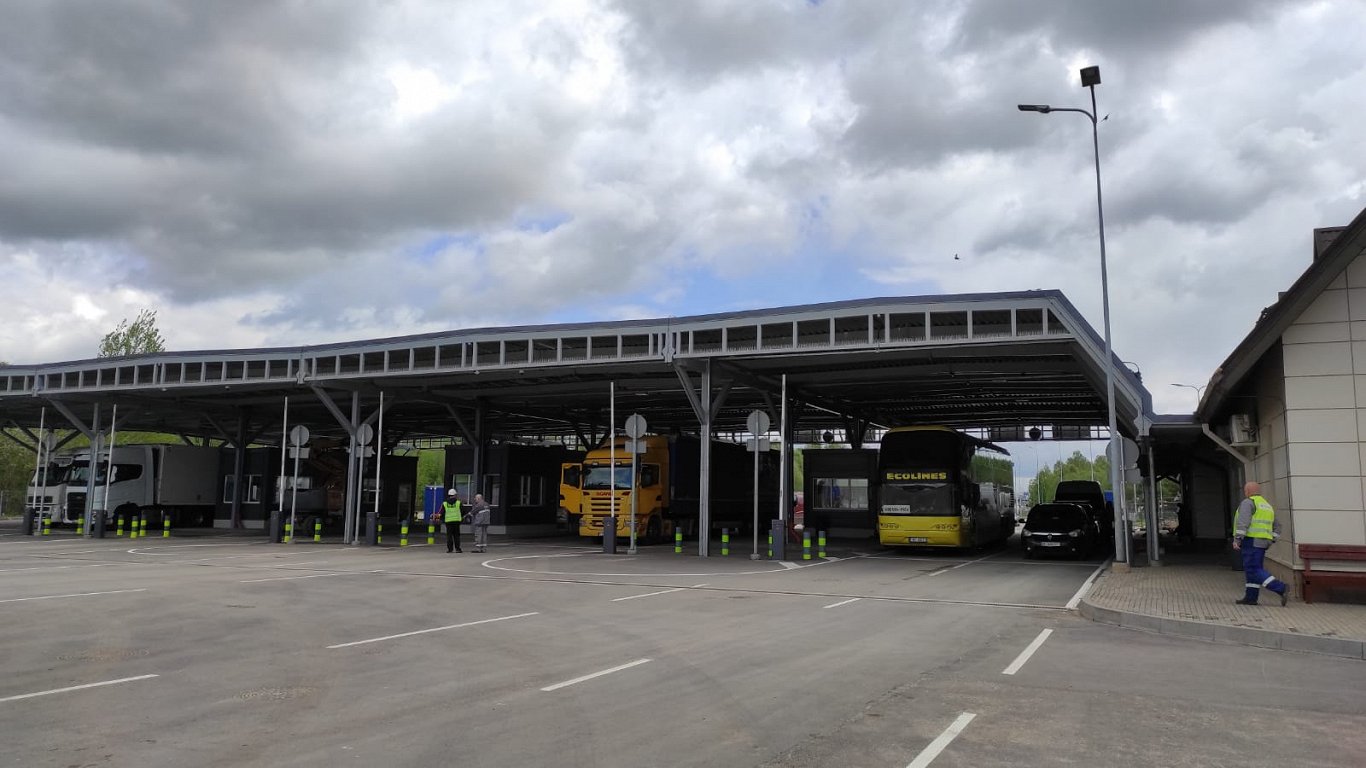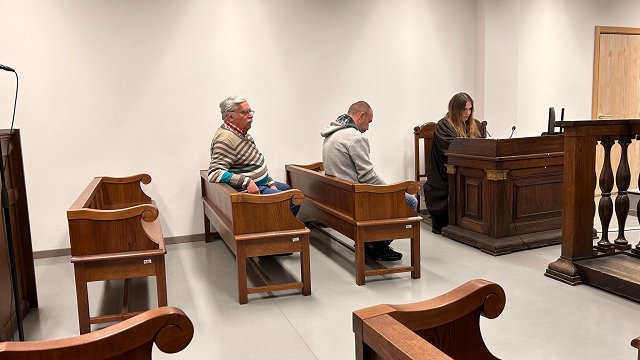Since February 24, a total of 57 thousand Ukrainian nationals have crossed Latvia's border from Russia and Belarus to enter Latvia. Not all are war refugees and most of them use Latvia as a transit country to return to Ukraine or travel further to Europe.
Latvian Radio spoke to three women at the border inspection post in Terehova.
“We are from the city of Izium. We sat in the basement for three months. We buried one of our neighbors every day. We hardly had food. There is no gas, no electricity, no water, no Internet, no communications. We are happy to be alive. It's the main thing. Every day we buried someone – stroke, infarction, splinter injuries. We've seen everything,” said one of the fugitives.
“We didn't have any money at all. Our acquaintances led us out of town to the Russian border. Then we went to Moscow and now we are here."
From the Terehova border inspection post, they will be transported to Riga with the support of the border guard. There they will seek help again to bring their blind grandmother to distant relatives in the Czech Republic, but the mother and daughter plan to go to Germany.
Currently, many volunteers have applied to help Ukrainian refugees get to Rīga or other countries of the European Union. One of them is Ivars, who has been transporting refugees from the border to Rīga and Poland for two months. Ivars now points out that the situation with the transport of refugees has been sorted out in some ways.
“A week ago, it was a very acute issue, because people often simply stayed on the street at Latvian checkpoints. No information to address what to do. At present, border guards and local governments have been actively involved in helping. Refugees are taken to Zilupe, Ludza. The Center in Alūksne also works quite actively. We don't have volunteer drivers in Terehova right now, because there is no need for this,” Ivars said.
The situation on the border can change, and a register of volunteer drivers is being created among those many supporters.
“Until now, around 60-70 cars in East Latvia and at least 200 cars in Central Latvia have been involved,” Ivars said.
The municipality of Ludza municipality is also involved in the accommodation and transport of refugees. According to the Ukrainian refugee responsible Jānis Romancāns, refugees are currently offered the opportunity to reach accommodation sites in Ludza, Zilupe, and Rēzekne and from there by public transport.
“Public transport for Ukrainians is free. We also help them build a route for further travel. They are mostly intercity buses, or a train Zilupe–Rīga,” said Romancāns.
The 'Young Folk' organization is actively involved in refugee transport matters. According to the head of the association Aleksandrs Morozovs, they await Ukrainian refugees both from Estonia and from the eastern border of Latvia and provide them with different types of assistance and information.
“We have opened a volunteer center at the Riga bus station and have been working for six days from 8 a.m. to midnight. Any refugee who comes with a volunteer or by train or bus can turn to us. We'll help if they don't have money, we can also provide food. We will help them order bus tickets or ferry to Germany and support with information,” said Morozovs.






























